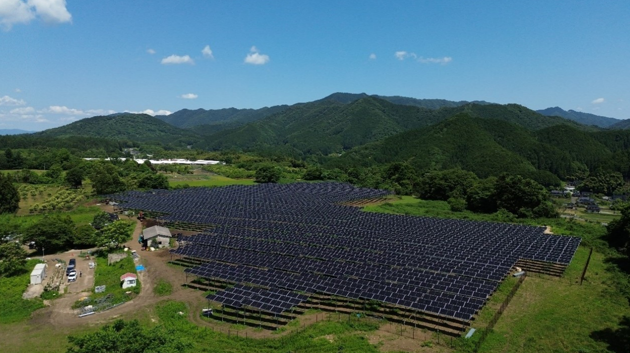
Kyoto, Japan, 26 August 2024 – Trinasolar, a global leader in smart photovoltaic (PV) and energy storage solutions, is proud to announce the commercial operation of its latest agrivoltaics project in Fukuchiyama, Kyoto Prefecture. Developed by its International System Business Unit (ISBU) arm, which specializes in the production and delivery of utility-scale solar projects for the global market, this large-scale initiative represents a significant milestone for its operations in the Japanese market, demonstrating the potential of agrivoltaics to harmonize renewable energy production with agricultural activities.
The Fukuchiyama project utilizes 3,392 of Trinasolar's ultra-high power Vertex N 720W series modules (TSM-690NEG21C.20), incorporating the latest 210mm wafer technology and high-efficiency n-type i-TOPCon cells. These state-of-the-art modules are designed to maximize energy output, with maximum efficiency of 23.2%, maintaining low levelized cost of electricity (LCOE). As a result, the project is expected to generate 2,700MWh of clean energy annually, reducing carbon dioxide emissions by approximately 1,760 tons each year.
Empowering Agrivoltaics – Trinasolar's PV+ Model
The project is a prime example of agrivoltaics, where agricultural land is used for both crop production and solar energy generation. In this case, the solar farm supports the cultivation of Japanese yam, also known as ebi-imo, a crop native to the region. With its low light saturation point, Japanese yam thrives beneath the shade of the solar module. In addition, it depends heavily on soil moisture, and is typically grown in paddy fields. The shade provided by the modules reduces soil moisture evaporation, ensuring the crops have sufficient water for growth.
Trinasolar's innovative “PV+” model is key to this success. The modules are mounted at a minimum height of 2.35 meters above the ground, with rows spaced to allow the use of agricultural machinery like tractors and rotary tillers. This careful design ensures that agricultural operations can continue seamlessly beneath the modules, fostering sustainable land use and contributing to the local economy.
As Japan seeks to achieve carbon neutrality by 2050, the Japan Photovoltaic Energy Association (JPEA) has projected that one-quarter of the country's solar power generation will come from agricultural land. Trinasolar's agrivoltaics project in Kyoto stands as a testament to the viability of this approach, demonstrating how renewable energy can support other critical industries, such as agriculture, in the pursuit of a net-zero future.
This innovative agrivoltaics project underscores Trinasolar's commitment to supporting Japan's clean energy goals while contributing positively to the environment and local communities. As agrivoltaics gains momentum worldwide, this project serves as a valuable demonstration of sustainable land use practices, offering insights for future developments in the field and paving the way for a sustainable future.
